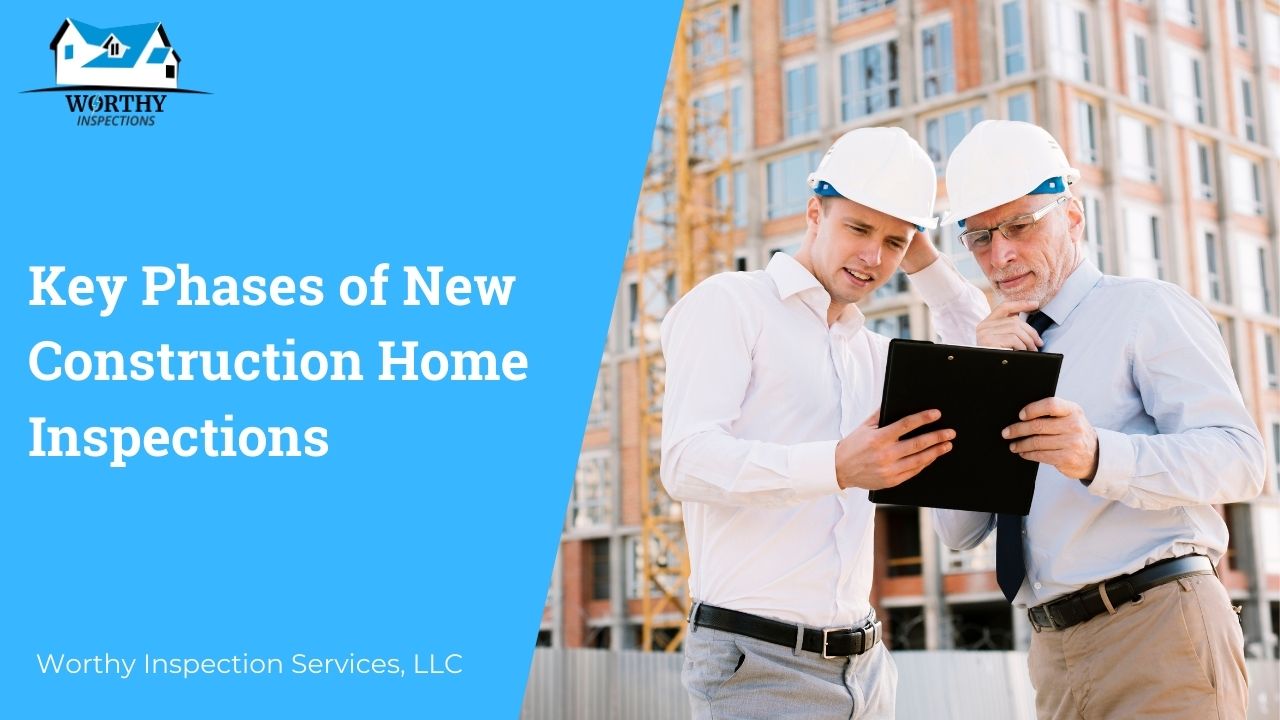Building your dream home is like piecing together a puzzle, but ensuring everything is done right is essential. This is where new construction phase inspections occur as a crucial safeguard throughout the building process. From the foundation to the final finishing touches, these inspections are your safety net, catching potential concerns before they become major problems.
With a thorough inspection process, you can confidently step into your new home, knowing it is beautiful and built to last.
What is a New Construction Phase Inspection?
A new home inspection is a comprehensive evaluation conducted at various stages of the home-building process. The primary purpose of these inspections is to ensure that each build stage meets local codes and quality standards. The process involves multiple stages, from the foundation's pre-pour inspection to the completed home's final walkthrough. Each inspection is designed to identify potential issues before escalating, making them essential to home-building.
Key Phases of a New Construction Inspection
Understanding the key phases of a house inspection during new construction can help homeowners appreciate the thoroughness of the process. Here are the primary phases to consider:
-
Pre-Pour/Foundation Inspection
The first phase of a new construction inspection occurs before the concrete is poured for the foundation. This inspection focuses on-site preparation, including grading, drainage, rebar placement, and other structural elements. Ensuring that the foundation is set correctly is crucial for the stability of the entire home.
-
Framing Inspection
Once the foundation is in place, the framing inspection is next. Inspectors check the structural integrity of the framing, including walls, floors, and roofs. This phase ensures that the framework is built to code and that it can support the intended loads. Any points at this stage can be costly to fix if not addressed early.
-
Pre-Drywall Inspection
A pre-drywall inspection is conducted before the drywall is installed. Once the drywall is up, this inspection allows for a thorough evaluation of the hidden electrical, plumbing, and HVAC systems. Inspectors look for proper installation and compliance with local codes, ensuring everything functions correctly and safely.
Final Inspection
The final inspection occurs when the home is nearly complete. Inspectors assess all aspects of the home, including finishes, fixtures, and overall safety. This comprehensive review ensures everything is in place and meets quality standards before the homeowners take possession.
Why Are These Inspections Important?
Recognizing their significance is essential for a smooth building process and a safe, durable home.
-
Prevention of Major Problems
Conducting inspections at each phase prevents major concerns from arising later. Homeowners can save time and money by identifying and addressing concerns early in construction.
-
Building to Code
New construction inspections ensure that the home is built to code, which is vital for safety and insurance purposes. Adhering to local building codes protects homeowners from legal liabilities and helps maintain property values.
-
Ensuring Quality Workmanship
Inspections ensure that quality artistry is upheld throughout the building process. This attention to detail is essential for the home's longevity and performance.
Common Problems Found During New Construction Phase Inspections
During new construction phase inspections, several common subjects may be identified:
-
Foundation Issues
Cracks, improper drainage, and settling can all lead to significant problems if not addressed during the initial inspection phase.
-
Framing Problems
Misaligned studs, inadequate bracing, or improper materials can compromise the home's structural integrity.
-
Electrical and Plumbing Faults
Electrical wiring or plumbing installation errors can lead to hazardous conditions, making these inspections crucial for ensuring safety.
Benefits of New Construction Inspections for Homeowners
Investing in new construction inspections provides several benefits for homeowners:
-
Long-Term Savings
Identifying problems early can lead to significant long-term savings. Addressing problems before they escalate often costs less than waiting until they become major repairs.
-
Peace of Mind
Knowing that a qualified inspector has evaluated the home at each phase gives homeowners peace of mind. It assures them that their investment is sound and that their home is safe.
-
Resale Value
A well-inspected home retains its value better than one without thorough inspections. Future buyers will appreciate the quality assurance provided by these inspections.
Final Thoughts
New construction phase inspections are essential for ensuring your home's safety, quality, and longevity. By identifying concerns early and confirming compliance with local codes, these inspections safeguard your investment and provide tranquility, allowing you to enjoy your dream home fully.
Protect Your Home with Worthy Inspections Services
Protect your dream home with Worthy Inspections Services. Our expert phase inspections identify potential problems early, ensuring safety and quality throughout the building process.
Contact us today to schedule your inspection and secure your investment for the future!



Comments are closed